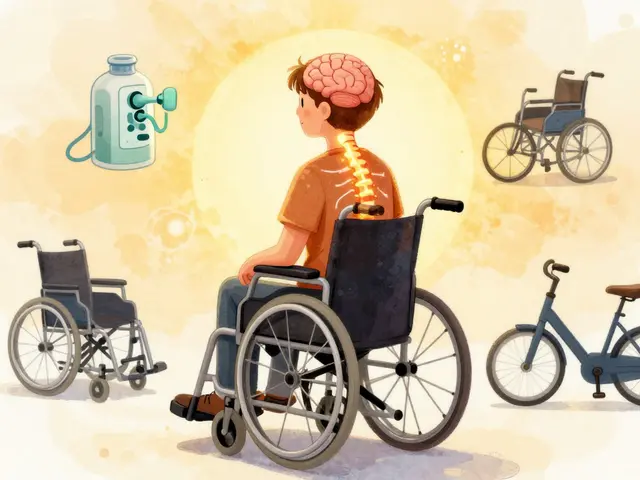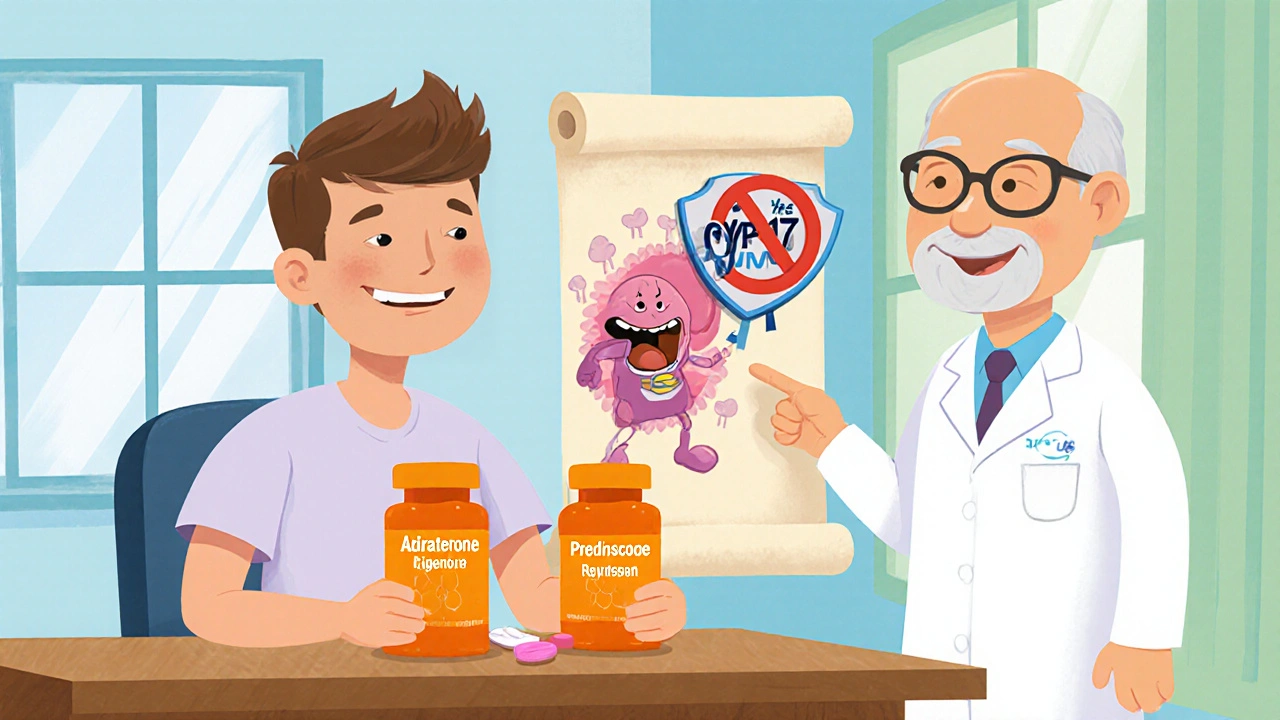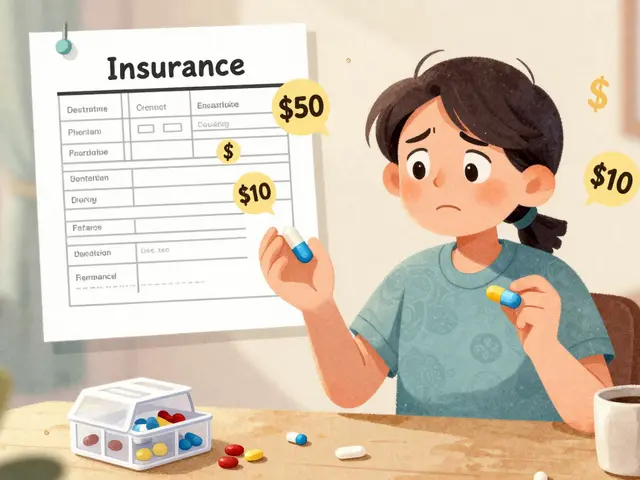CYP17 Inhibitor: What It Is and Why It Matters
When working with CYP17 inhibitor, a class of drugs that block the enzyme CYP17 (also called 17α‑hydroxylase/17,20‑lyase). Also known as CYP17A1 blocker, it cuts off the pathway that creates androgens and estrogens from cholesterol. In plain terms, it stops the body from making the male hormones that many cancers rely on. This simple idea—shut down the hormone factory—has turned into a cornerstone of modern oncology, especially for men battling prostate cancer. Below you’ll see how the science, the drugs, and the patient experience all tie together.
How CYP17 Inhibitors Interrupt Steroid Production
The enzyme CYP17 sits at a fork in the steroidogenesis road. If you picture cholesterol as a raw material, CYP17 is the machine that chops it into precursors for both androgens and cortisol. A CYP17 inhibitor literally jams that machine, preventing the conversion of pregnenolone and progesterone into 17‑hydroxy‑products. The result is a sharp drop in downstream testosterone and dihydrotestosterone levels. One of the most talked‑about drugs in this class is Abiraterone, an oral steroidal inhibitor approved for metastatic castration‑resistant prostate cancer. It binds tightly to the heme group of CYP17, slowing the reaction almost to a halt. Another older agent, Ketoconazole, an antifungal that also blocks CYP17 at high doses, is still used in some settings where cost is a concern. Both drugs showcase the core principle: block the enzyme, watch androgen levels plummet, and starve hormone‑sensitive tumors. The blockade isn’t free of side effects. Because CYP17 also contributes to cortisol synthesis, patients often need low‑dose prednisone to avoid adrenal insufficiency. This balancing act highlights why understanding the enzyme’s dual role is essential for safe prescribing.
Clinical Applications: From Prostate Cancer to Rare Endocrine Disorders
Prostate cancer is the poster child for CYP17 inhibition. The disease grows faster when testosterone circulates, so doctors combine Androgen Deprivation Therapy, any treatment that lowers male hormone levels, such as LHRH agonists or orchiectomy with a CYP17 inhibitor to achieve deeper hormone suppression. Studies show that adding abiraterone to standard ADT improves survival by months, sometimes years, for men with advanced disease. Beyond prostate cancer, CYP17 inhibitors have niche roles. Certain forms of congenital adrenal hyperplasia (CAH) involve excess androgen production; a low‑dose CYP17 blocker can help normalize hormone balance. In some estrogen‑dependent breast cancers, off‑label use of ketoconazole has been explored to reduce estrogen synthesis. Even in research settings, scientists use these drugs to probe the hormone pathways that drive tumor growth, opening doors for combination therapies with immunotherapy or PARP inhibitors. The common thread across these uses is the same semantic triple: CYP17 inhibitor → reduces androgen synthesis → slows hormone‑driven tumor growth. Whether the endpoint is a prostate tumor, adrenal hyperplasia, or a lab model, the logic stays consistent.
Safety, Monitoring, and Practical Tips for Patients
Because CYP17 inhibition touches both the androgen and cortisol arms of steroidogenesis, doctors watch a few key labs. Baseline liver function, potassium, and blood pressure matter—abiraterone can cause hypertension and hypokalemia. After starting therapy, patients usually have blood draws every 2–4 weeks to check cortisol precursors, renin‑angiotensin markers, and electrolytes. If prednisone is added, tapering schedules help keep adrenal function intact. Patients often notice fatigue, joint aches, or fluid retention in the first weeks. Those symptoms often improve once the body adjusts to lower hormone levels. It’s also worth noting that CYP17 inhibitors can affect mineralocorticoid pathways, leading to increased sodium retention. Staying on a low‑salt diet and monitoring weight can mitigate this effect. From a practical standpoint, taking the medication with food helps absorption, and the dose should never be missed. If a dose is missed, the recommendation is to take it as soon as remembered unless it’s close to the next scheduled dose—then skip the missed one and continue as usual. Consistency is key because hormone levels swing quickly when the enzyme is blocked.
Now that you’ve got a clear picture of what CYP17 inhibitors are, how they work, and why they’re a game‑changer for hormone‑driven conditions, the articles below dive deeper into specific topics. From travel tips for heart‑rhythm patients to detailed drug‑comparison guides, you’ll find practical insights that build on the science we just covered. Keep scrolling to explore the full collection and discover how these concepts apply to everyday health decisions.
19
Abiraterone's Impact on Metastatic Prostate Cancer Treatment
Explore how abiraterone reshapes treatment for metastatic prostate cancer, covering its mechanism, key trials, guidelines, side‑effects and emerging combos.
Latest Posts
Popular Posts
-
 Meniere’s Diet: How Sodium Restriction and Fluid Balance Reduce Vertigo and Hearing Loss
Meniere’s Diet: How Sodium Restriction and Fluid Balance Reduce Vertigo and Hearing Loss
-
 Duloxetine and Liver Health: What You Need to Know About Hepatotoxicity Risk
Duloxetine and Liver Health: What You Need to Know About Hepatotoxicity Risk
-
 Enteral Feeding Tube Medication Safety: Compatibility and Flushing Protocols Explained
Enteral Feeding Tube Medication Safety: Compatibility and Flushing Protocols Explained
-
 Spinal Cord Injury: Understanding Function Loss, Rehabilitation, and Assistive Devices
Spinal Cord Injury: Understanding Function Loss, Rehabilitation, and Assistive Devices
-
 Magnesium Supplements and Osteoporosis Medications: What You Need to Know About Timing
Magnesium Supplements and Osteoporosis Medications: What You Need to Know About Timing


